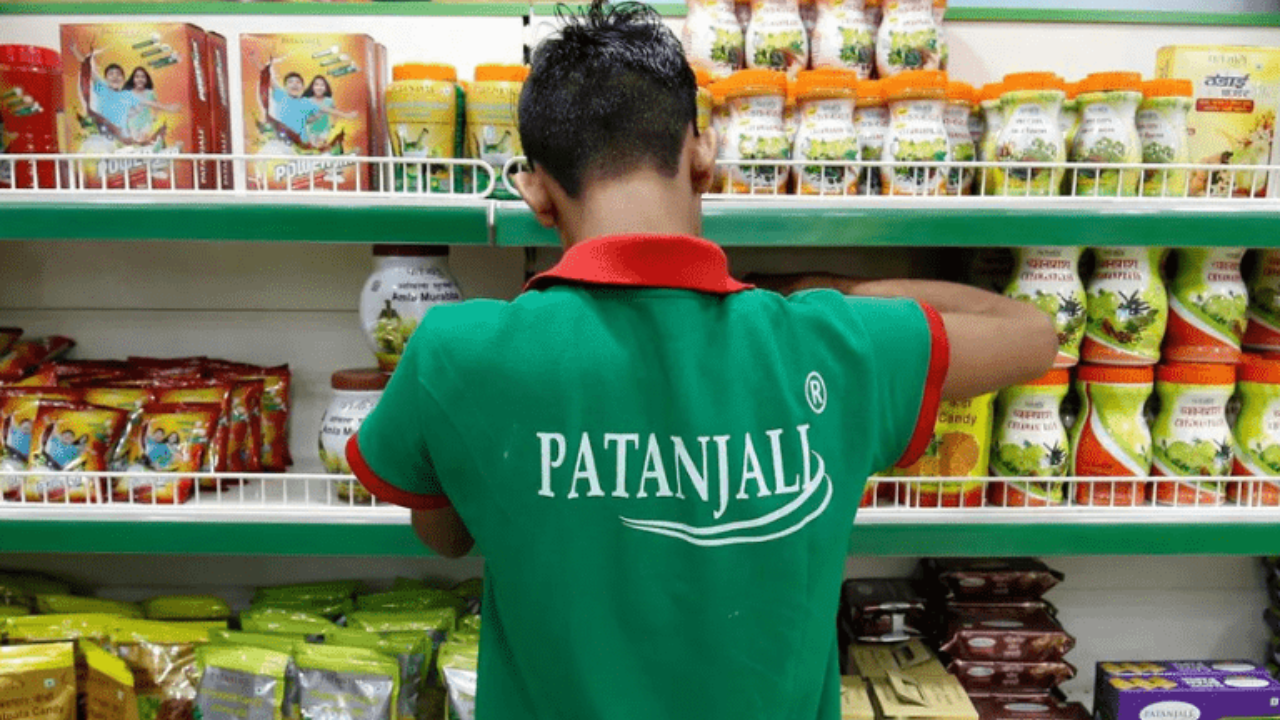Patanjali Recalls Red Chilli Powder: What You Need to Know
Hold onto your hats, spice lovers! Patanjali, the renowned Indian FMCG giant, has issued a major recall of its red chilli powder. Yes, you read that right—a massive recall affecting thousands of packets due to exceeding the maximum permitted pesticide residue. This isn't just some minor issue; this has major implications for consumers who rely on Patanjali for their daily spices. Find out everything you need to know about this massive recall and what it means for you.
Why the Patanjali Red Chilli Powder Recall?
The Food Safety and Standards Authority of India (FSSAI) initiated this action after finding that Patanjali's 200-gram red chilli powder packs failed to meet their strict pesticide residue limits. Testing revealed unacceptably high levels of pesticide residue, prompting immediate action to remove potentially contaminated products from the market. This situation highlights the importance of rigorous quality control measures within the food industry. Patanjali, known for its focus on natural ingredients, is facing scrutiny after these test results emerged. The incident could lead to a reconsideration of trust among the customers who used to swear by their brand’s purity and reliability. We are now wondering what the next step for the brand is to regain the confidence of its consumers, whether that may involve a rigorous new review of all processes in place, more testing to prove safety, or even changes to management.
Understanding FSSAI Regulations
FSSAI establishes maximum residue limits (MRLs) for pesticides in various food products. These limits are carefully set to safeguard public health. Exceeding these limits can pose serious health risks, highlighting the necessity of comprehensive safety regulations within the Indian food industry and strict quality controls across all manufacturing facilities and packaging lines. Any breach of these guidelines, such as the failure of Patanjali’s red chilli powder products to meet MRL standards, demonstrates how imperative maintaining compliance is, and triggers immediate recalls to address such a problem before public health is at risk.
Patanjali's Response to the Recall
Patanjali has reacted swiftly, initiating a nationwide recall of approximately four tons of affected red chilli powder. The company emphasized its commitment to customer safety and regulatory compliance by taking immediate actions to contact its distributors and issuing advertisements alerting customers who had bought the affected batch. It urges those who had bought those packs to return the items for a full refund at the location of purchase. Sanjeev Asthana, CEO at Patanjali Foods, explained their process of full transparency to the general public during the course of the investigation and subsequent recall. The recall itself is also a way to ensure a commitment to following food safety standards and public health protocols. Even if a minor issue, they would rather be safer than sorry by promptly pulling the product off the shelves.
Impact on Patanjali's Brand Image
Although Patanjali claims the recalled volume is relatively small, the negative impact on their brand image is undeniable. Patanjali, previously associated with natural and pure ingredients, now faces questions about its quality control processes. This recall could tarnish their reputation, affecting consumer confidence, and posing a challenge for their business practices. Consumers are likely to be more cautious when choosing products from this brand, resulting in a dip in brand popularity, decreased trust among consumers, and subsequent decrease in sales volume. While Patanjali took appropriate action immediately by initiating a recall, consumers will still be impacted in terms of losing time returning the affected batches of products and getting the necessary refunds.
Consumer Confidence and Future Outlook
Maintaining consumer trust is paramount for any brand, particularly one that emphasizes natural and healthy products like Patanjali. Open communication, swift action, and complete transparency will be critical in mitigating any long-term damage to the company’s brand reputation. A comprehensive internal review of production processes should be performed so this kind of scenario can be prevented in the future. Moreover, providing concrete steps and assurance for future improvement on safety would regain some consumer confidence, allowing their market share to grow once more.
Lessons Learned: Pesticide Residue in Food
This incident serves as a stark reminder of the importance of food safety and strict adherence to regulations. It emphasizes the critical role of pesticide residue testing and stringent quality control measures to protect consumers and maintain public health. This includes transparency and quick communication when such incidents arise to assure that appropriate measures are in place. While many FMCG giants had issues with such instances, how a company deals with it defines what kind of impression it leaves with consumers. We could see the future response to this scenario by the brand with how they move forward.
Implications for the Food Industry
The Patanjali recall should encourage heightened vigilance and improved standards across the Indian food industry. Regular pesticide testing, transparent practices, and robust recall mechanisms are essential to maintain public trust and guarantee that consumer safety is always a primary priority across the entire food production and manufacturing sectors.
Take Away Points
- Patanjali recalled red chilli powder due to exceeding FSSAI's maximum permitted pesticide residue limits.
- The recall highlights the importance of food safety regulations and strict quality control.
- This incident could negatively affect Patanjali's brand image and consumer trust.
- The food industry must maintain transparency and act swiftly to address such issues to uphold public health.









